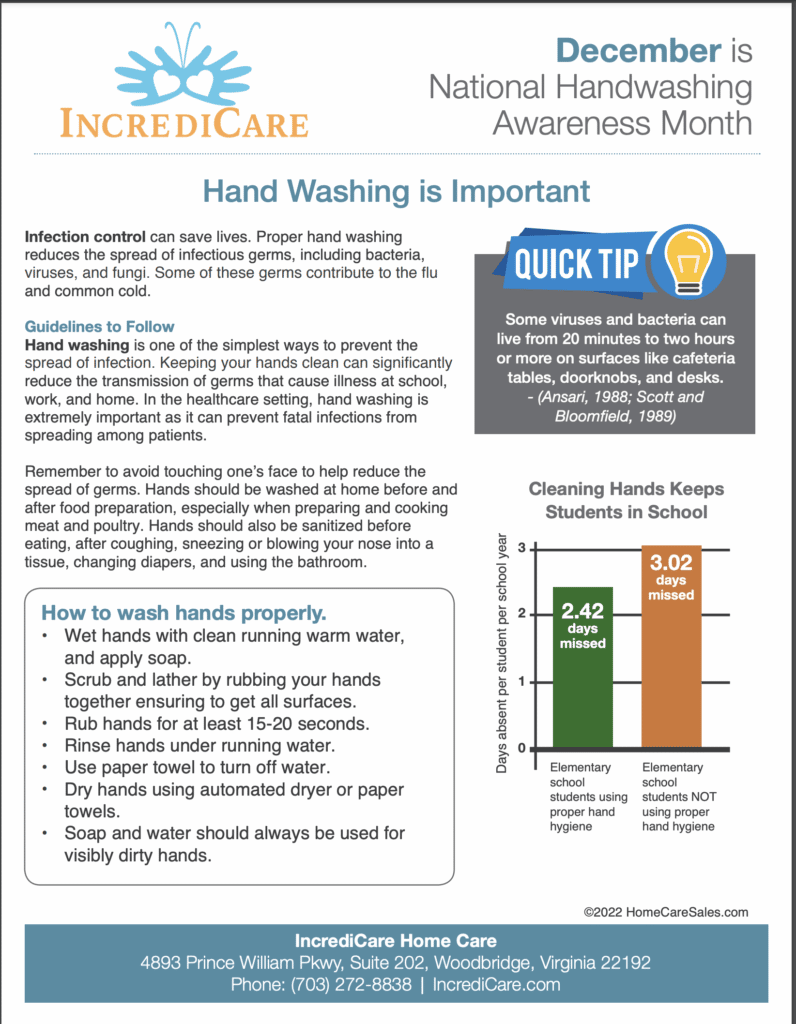Infection control can save lives. Proper hand washing reduces the spread of infectious germs, including bacteria, viruses, and fungi. Some of these germs contribute to the flu and common cold.
Guidelines to Follow
Hand washing is one of the simplest ways to prevent the spread of infection. Keeping your hands clean can significantly reduce the transmission of germs that cause illness at school, work, and home. In the healthcare setting, hand washing is extremely important, as it can prevent fatal infections from spreading among patients.
Remember to avoid touching one’s face to help reduce the spread of germs. Hands should be washed at home before and after food preparation, especially when preparing and cooking meat and poultry. Hands should also be sanitized before eating, after coughing, sneezing or blowing your nose into a tissue, changing diapers, and using the bathroom.
“Some viruses and bacteria can live from 20 minutes to two hours or more on surfaces like cafeteria tables, doorknobs, and desks.”
– (Ansari, 1988; Scott and Bloomfield, 1989)
How to wash hands properly.
- Wet hands with clean running warm water, and apply soap.
- Scrub and lather by rubbing your hands together, ensuring to get all surfaces.
- Rub hands for at least 15-20 seconds.
- Rinse hands under running water.
- Use paper towel to turn off water.
- Dry hands using automated dryer or paper towels.
- Soap and water should always be used for visibly dirty hands.
Providing exceptional Home Care for seniors and families in the Northern Virginia area, including Arlington, Alexandria, McLean, Reston, Burke, Ashburn, Centreville, Springfield, Manassas, and Oakton. Call today to speak with our caring staff: (703) 272-8838.
- What Are Some Surprising Early Signs of Dementia? - May 22, 2025
- Training of the Month: Lymphedema - May 15, 2025
- Career and Opportunities Fair - May 15, 2025




